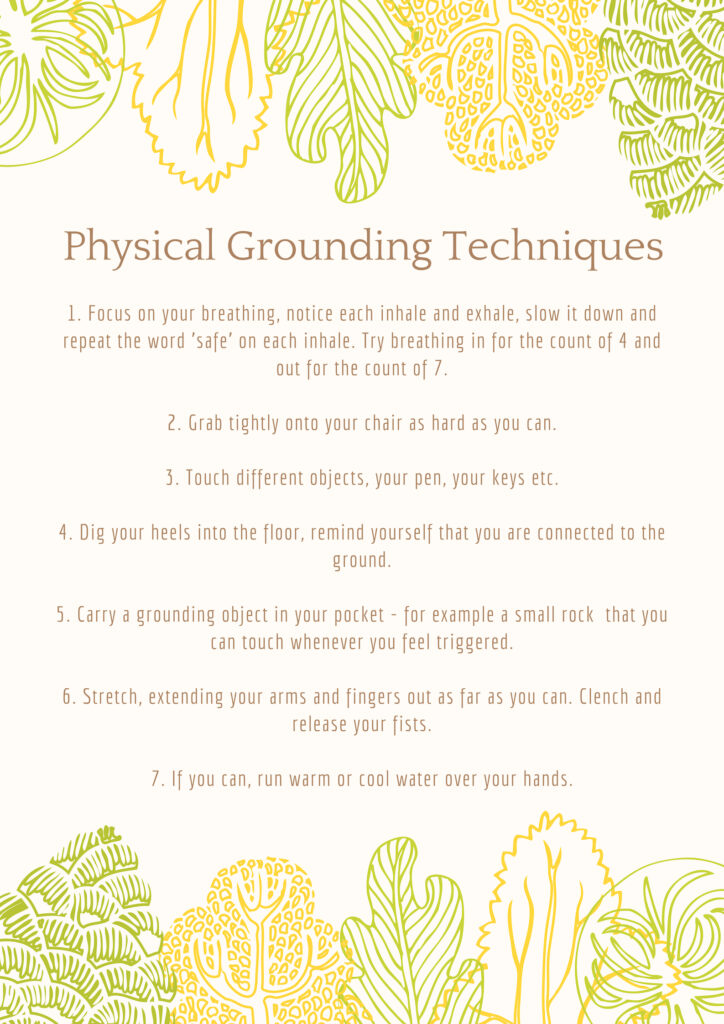Mental Health Grounding Exercise - Reconnect With Your Body On A Sensory Level
- Suzanne
- Mar 11, 2025
- 3 min read
Updated: Jun 9, 2025

What is Grounding?
"Grounding yourself" means finding stability and focus, especially when you're feeling stressed or anxious. It can also mean reconnecting with the present moment, your senses and your surroundings.
This technique aims to bring you out of anxious thoughts, and return you from negative, challenging emotions to the present. Refocusing on what is happening right now distracts your mind from unwanted experiences.
Pilates and Grounding
Pilates can promote grounding through its focus on body awareness, mindful movement, and breathwork, encouraging a connection to the present moment and the body's foundation.
For people with long-term health conditions, grounding, or "earthing," which can involve direct contact with the Earth's surface, may offer potential benefits like reduced inflammation, improved sleep, and pain relief, though more research is needed to confirm its effectiveness.
The Science Of Grounding Exercises
Recent research tells us that the mind and body are connected and that by tuning into how you’re physically feeling, you can begin to feel calmer and more centred. That’s because the parts of the brain that control your thinking and planning can sometimes lead to ruminating, which can raise our stress. By focusing on our senses we can break the ruminative cycles, improving even our involuntary functions like blood pressure and heartbeat.
Potential Benefits for people with long-term health conditions:
Reduced Inflammation: Some research suggests grounding may help reduce inflammation, a common factor in many chronic conditions.
Improved Sleep: Grounding may promote better sleep quality, which is crucial for managing chronic conditions and overall well-being.
Pain Relief: Grounding may help alleviate chronic pain, a common symptom experienced by people with long-term health conditions
Stress Reduction: Grounding may help reduce stress, which can exacerbate chronic conditions.
Improved Immune Response: Some studies suggest that grounding may enhance the body's immune response.
Wound Healing: Grounding may promote faster wound healing.
The Secret to Successful Grounding Techniques
Tune into your senses to help you ground yourself in the body. Focus on what you can see, feel, hear, smell, and taste. That, and a few deep breaths should make you feel much more connected to your body.
Root-ground your body is a great place to get started with a guided grounding exercise by Jay Shetty.
The poster below has some really simple yet effective physical grounding techniques which require very little time or effort to implement into your day making them great for people with low energy, fatigue and health conditions/disabilities.

Extra Grounding Steps
Tune into the Senses for 6 minutes with Megan Reitz is a quick way to ease stress and ground yourself in the present, a gift from Calm to help you reconnect.
Other grounding techniques you could try include:
Walking barefoot and feeling the ground beneath your feet
Holding a warm or cold object, like an ice cube or a cup of tea
Splashing your face with cold water
Chewing mint or cinnamon gum
Sucking on mints or sour candies
Repeating a calming mantra
Helpful Links and Further Information

Mobilates CIC provides online and in-person inclusive exercises classes for people in the UK. Classes centre around supporting people with mobility issues, chronic pain, disabilities and long-term health conditions.





Comments